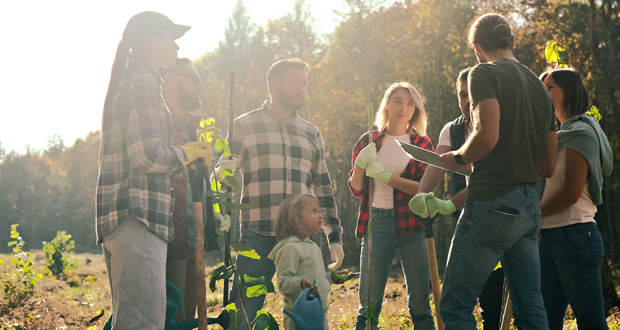The third annual Social Value in Construction Benchmarking Report, produced jointly by social value measurement and monitoring platform Social Value Portal and SCAPE, one of the UK’s leading public sector procurement authorities shows that £1.08 billion social value was generated from contracts worth a total of £4.57 billion.
The report, which analysed nearly 500 construction projects completed in 2022, also found that overall total social value return on investment showed an increase of over four per cent from 19.55 per cent in 2021 to 23.62 per cent in 2022.
Key social value trends identified include:
- Collaboration is vital to making sure Social value is created, measured and celebrated in a consistent way, by sharing knowledge and resources across the industry.
- There is greater demand for the qualitative aspects of delivery such as sharing real life stories and community impact to improve understanding of social value.
- Social value has been embedded into public sector contracts for a decade and the principles for its delivery and measurement are now starting to be adopted more widely in private sector contracts.
- Appetite for the measurement and reporting of environmental performance remains high on the list of priorities.
The data also shows that social value is not limited to large contractors or projects – it has now become embedded in the way the construction industry does business.
Local spend and employment measures continue to provide the bedrock of the social value generated, but there is a more diverse range of other social value delivery also taking place, including the increased use of environmental measures to support regional and national decarbonisation targets.
Nathan Goode, Chief Strategy Officer, Social Value Portal, commented: “The construction industry was an early adopter of social value, and this report shows that momentum is being sustained. Companies in the sector have built social value into their business models and are now looking to move social value onto the next stage.
“This third annual Social Value in Construction Benchmarking Report reveals a number of significant trends – most notably increasing focus on environmental concerns and a desire for greater collaboration and adoption of social value in the private sector, all of which will be interesting to monitor and report on over the coming years.
“Historically, social value return on investment has been thought of as something that can only be delivered through large projects. This report serves to demonstrate that projects of varying sizes can – and do – have a meaningful impact.”
SCAPE delivery partners
As part of the report – and for the first time – all 23 SCAPE delivery partners participated in a survey which reflected views across the industry about the future of social value measurement and reporting.
Overall, delivery partners agreed that striking the right balance between delivering the social value outcomes that clients and their communities need, and aligning to their corporate social value strategies was the key to success. Forty-five per cent said they use these strategies to support early conversations around project KPIs.
Sixty-five per cent of respondents believe there is a wide variance when it comes to social value in the construction sector, with some areas showing innovation and leadership and others still at an early stage on their journey.
Are you confident that your contractors and suppliers meet ethical labour standards and human rights obligations?
For many FM services, managing multiple third parties in the supply chain can be a complex challenge. And, in a sector that relies heavily on migrant workers and 65 per cent of FM services facing difficulties in sourcing workers (Q4 2022 RICS survey), exposure to exploitation and modern slavery is a very real risk. With the UK one of the biggest destinations in Europe for trafficking of workers, you need full visibility of the people you work with, so you can minimise your risks and identify which part of your supply chain is most vulnerable.
FMJ, in partnership with Alcumus, is pleased to bring together a panel of experts to discuss how to create an ethical supply chain in FM.
Taking place at 11am on Wednesday 21st of June, the webinar will discuss:
- The regulations to be aware of that are aimed at preventing human right abuses.
- How to gain greater visibility of modern slavery compliance in the supply chain by having a robust verification process in place.
- Steps to creating a compliant, ethical supply chain.
To register for the webinar click here.





